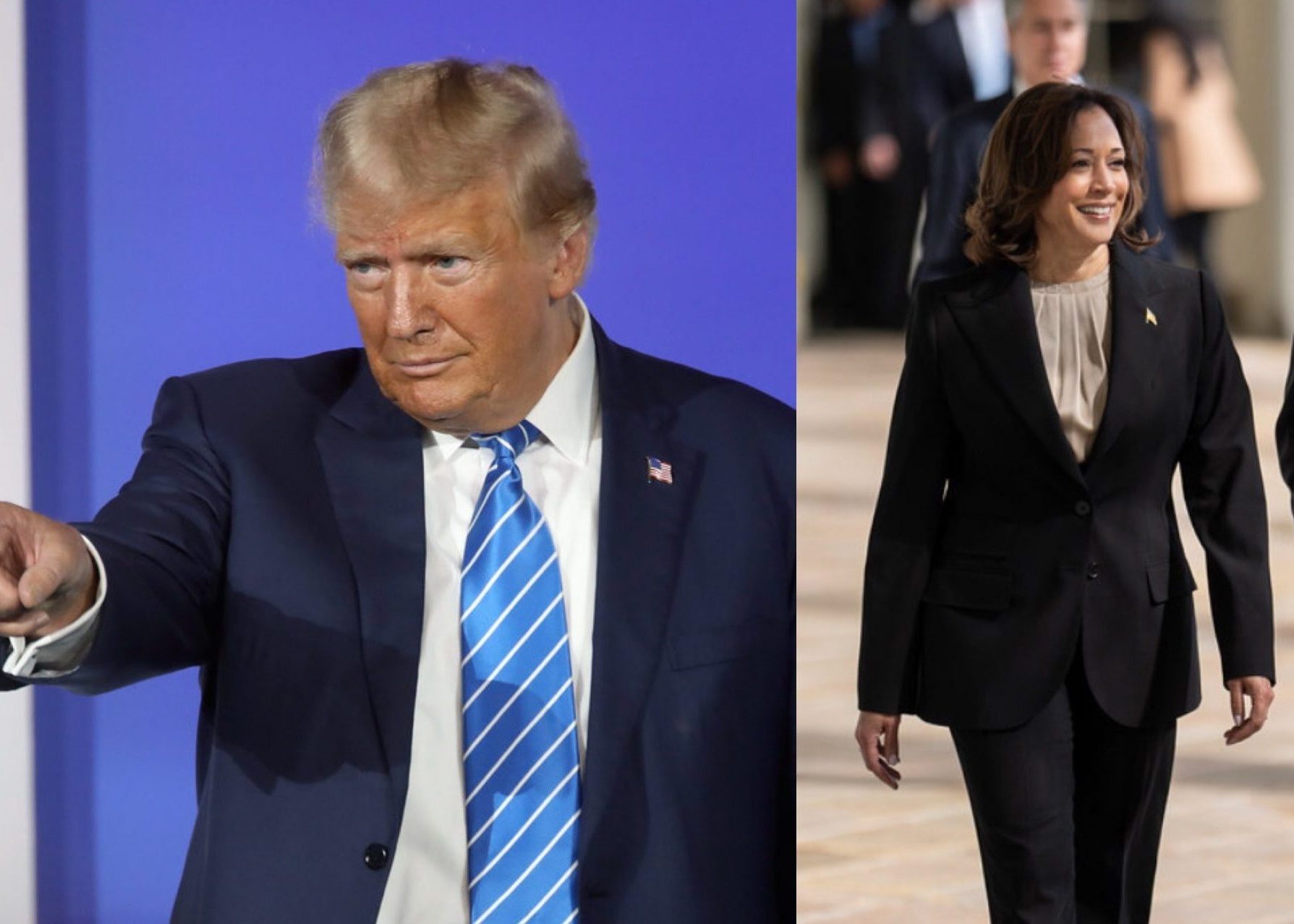Politics
NEW: Trump Retakes Lead In Top Election Forecast

As delegates convene in the heart of Chicago for the Democratic National Convention’s electrifying kickoff, the spotlight is on Kamala Harris and her vice-presidential pick, Tim Walz. However, recent forecasts have thrust former President Donald Trump back ahead, capturing a slender lead for November 5th.
While the Democrat duo is poised to take the stage in their bid, Trump and his running mate JD Vance are not sitting idle. They’ve embarked on their own strategic tour of pivotal battleground states, aligning their campaign efforts with the timing of the DNC to maximize impact.
The move appears to be paying dividends, according to the latest electoral forecast from The Economist, which places Trump narrowly ahead with 270 electoral votes to Harris’s 268. In Pennsylvania, Nevada, and Arizona, Trump’s lead hovers around a delicate balance of 52-55% against Harris.
More notably, his advantage broadens significantly in states like Georgia and North Carolina, where the forecasts suggest a 64-67% likelihood of his victory. On the other side, Harris maintains a slight edge in Wisconsin and a more comfortable lead in Michigan, signaling that the race is anything but settled. These states, with their diverse electorates and unique political landscapes, could very well dictate the trajectory of this tightly contested election.
#Latest @TheEconomist Forecast
Electoral Votes
🟥 Donald Trump: 270 🏆
🟦 Kamala Harris: 268
——
Swing States (chance of winning)Pennsylvania – 🔴 Trump 52-48%
Nevada – 🔴 Trump 52-48%
Arizona – 🔴 Trump 55-45%
Georgia – 🔴 Trump 64-36%
North Carolina – 🔴 Trump 67-33%… https://t.co/EbLAE1rYHA pic.twitter.com/oROye88EEf— InteractivePolls (@IAPolls2022) August 19, 2024
Trump’s campaign strategy, focusing on these battleground states during the Democrat convention, is a classic move in political chess, aiming to capture the narrative and sway media coverage. By aligning his campaign stops with the DNC, Trump seeks to juxtapose his leadership record against the promises of Harris and Walz.

The elections are occurring in a politically charged environment. The overturning of Roe v. Wade has led to significant state-level changes in abortion laws. This issue has been a significant driver in Democrat victories in recent elections and will continue to play a critical role in 2024. Election interference is also a concern, with reports of foreign attempts to influence the elections. The legal challenges facing Trump, including multiple indictments related to his actions during and after his presidency, have further polarized the electorate.
The election will be the first held after the reapportionment of electoral votes following the 2020 Census. This reapportionment has slightly shifted the balance of electoral votes, with Democrats losing a net three votes. As a result, the election is expected to be closely contested, with strategists predicting that a small percentage of voters in key swing states will determine the outcome.
As the DNC progresses, all eyes will be on how Harris and Walz address these forecasts and articulate their vision. Their challenge is not only to rally their base but also to address the concerns of swing-state voters who are pivotal in deciding the direction of the presidency. As both camps sharpen their strategies and refine their messages, the American electorate is left weighing a decision that will shape the nation’s future.
The winners of the presidential election are scheduled to be inaugurated on January 20, 2025, as the 47th president and 50th vice president of the United States.

